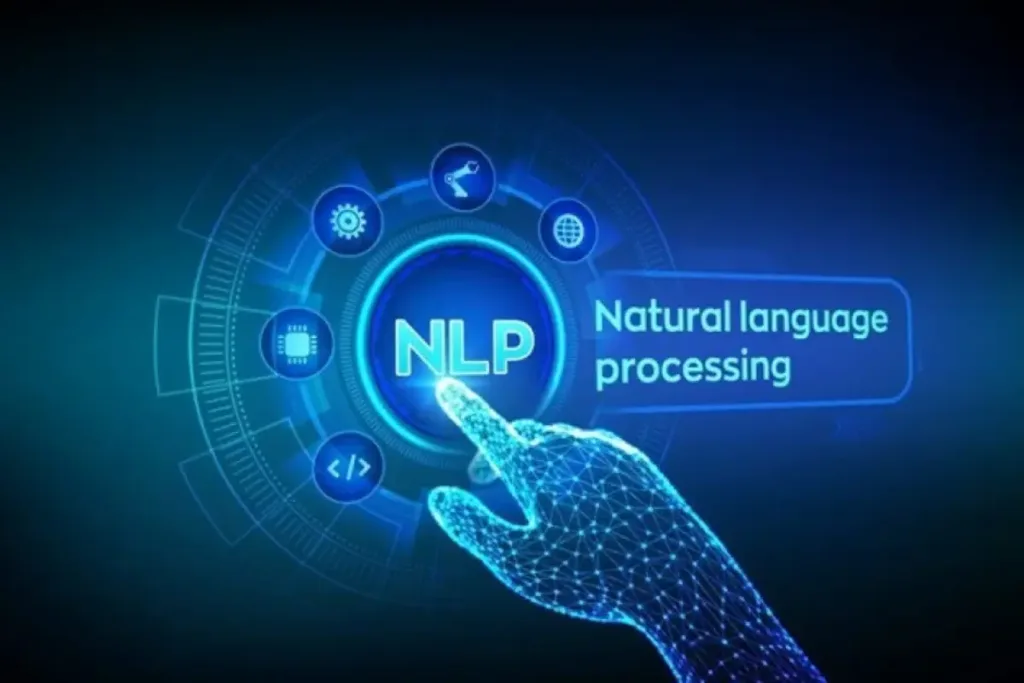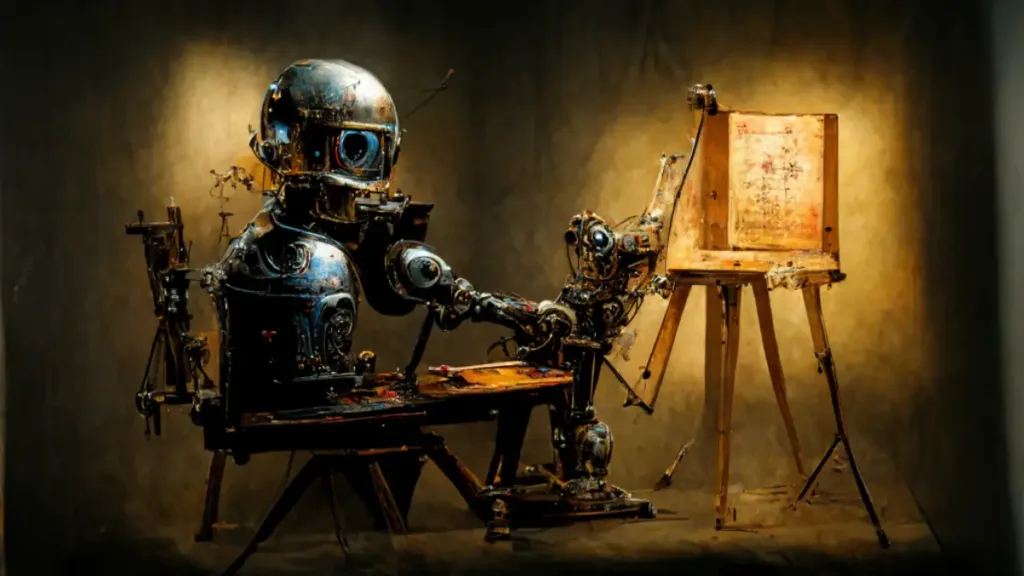Imagine this: You’re standing on the precipice of a technological revolution, a potent cocktail of code and creativity swirling before you. The air crackles with the electricity of possibility, the thought of algorithms rewriting the fabric of our world. as we delve into the top 10 AI careers in demand for 2024, This, my friend, is the exhilarating landscape of artificial intelligence, and it’s beckoning you closer.
But hold on. Before you dive headfirst into the neural network abyss, let’s take a breath. The allure of AI is undeniable: robots dancing with uncanny grace, algorithms composing symphonies that stir the soul, and machines diagnosing diseases with superhuman precision. It’s enough to make anyone’s heart race with excitement and a touch of trepidation.
This isn’t science fiction; it’s the present unfolding. AI is no longer a futuristic fantasy; it’s woven into the very fabric of our lives, from the smartphones that guide us through bustling streets to the self-driving cars promising us the freedom of the open road. And guess what? The demand for talent in this burgeoning field is skyrocketing.
But here’s the rub: Navigating the AI Career landscape can be daunting. Where do you even begin? What skills do you need? What are the hottest jobs in demand? Fear not, intrepid explorer! This is where your ultimate AI career guide comes in. We’ll be your trusty map, your Rosetta Stone, and your decoder ring for unlocking the secrets of this thrilling new world.
So, are you ready to step into the future? Buckle up, because we’re about to embark on a journey that will not only futureproof your career but also empower you to shape the very course of human history. Let’s crack open the code, unleash your inner AI Career prodigy, and rewrite the rules of what’s possible together.
Remember, the future belongs to those who dare to dream it, code it, and make it real.
Top 10 AI Careers in Demand for 2024: Your AI Career Compass
The air hums with the quiet whirring of innovation. In this digital age, artificial intelligence (AI) isn’t just a buzzword; it’s the lifeblood of progress, revolutionizing industries from healthcare to finance to entertainment to robotics. And at the heart of this revolution lies a diverse team of skilled professionals.
If you’re ready to chart your course in this dynamic landscape, prepare to be dazzled by the array of career opportunities waiting to be explored. Buckle up, future AI trailblazers, as we delve into the top 10 AI careers in demand for 2024, equipping you with the knowledge to navigate your dream job toward reality.

1. The Architect of Intelligence: A Machine Learning Engineer
Imagine shaping the minds of machines, crafting algorithms that learn and adapt with uncanny prowess. Machine learning engineers are the alchemists of AI, wielding code and data to build the models that power everything from self-driving cars to personalized recommendations.
- Technical Wizardry: This role demands fluency in programming languages like Python and R, familiarity with machine learning libraries like TensorFlow and PyTorch, and a knack for wrangling massive datasets.
- Building for Impact: From optimizing logistics to predicting market trends, machine learning engineers are behind the scenes, weaving the threads of innovation that impact every facet of our lives.

2. The Data Whisperer: A Data Scientist
Data, the raw fuel of AI, holds within it the whispers of hidden patterns and invaluable insights. Data scientists are the translators, extracting meaning from the chaos, cleaning, analyzing, and transforming data into actionable knowledge for AI models to devour.
- Statistical Sleuths: A keen eye for detail, statistical prowess, and familiarity with tools like Tableau and Power BI are essential for dissecting data and revealing its hidden truths.
- Storytelling with Numbers: Beyond just crunching numbers, data scientists spin compelling narratives from the data, guiding businesses toward data-driven decisions and unlocking the true potential of AI.

3. Pushing the Frontiers: AI Research Scientist
For those who yearn to explore the uncharted territories of AI, the path of an AI research scientist beckons. These pioneers dive into the deepest trenches of theoretical frameworks, pushing the boundaries of algorithms and applications and shaping the very future of this evolving field.
- PhD Pioneers: This path often demands a doctorate in computer science or a related field, along with a thirst for knowledge and the tenacity to tackle intricate theoretical challenges.
- Shaping the Future: From developing novel algorithms for natural language processing to tackling ethical dilemmas, AI research scientists are the architects of tomorrow’s AI landscape, influencing its applications and ensuring responsible development.

4. The Bridge Between Brains and Machines: AI Product Manager
Picture yourself as the maestro, harmonizing the technical symphony of AI with the human melody of user needs. AI product managers are the visionaries who translate complex algorithms into tangible products that enrich and empower our lives.
- Business Acumen and Tech Savvy: This role demands a balanced blend of business acumen and technical understanding. You’ll need to grasp market trends, user psychology, and design principles while understanding the capabilities and limitations of AI technology.
- From Concept to Reality: AI product managers shepherd ideas from conception to market launch, overseeing development, user testing, and iterating based on user feedback. It’s a role that demands leadership, communication skills, and an unwavering commitment to user-centricity.

5. The Conversational Conjuror: An AI Chatbot Developer
Ever dreamt of crafting captivating companions who converse, inform, and entertain? AI chatbot developers breathe life into virtual assistants, customer service bots, and even educational companions, weaving the magic of natural language processing (NLP) into engaging dialogues.
- NLP Ninjas: Proficiency in NLP libraries like NLTK and SpaCy is key, along with an understanding of machine learning algorithms for training chatbots to comprehend and respond to natural language.
- Scripting the Future of Interactions: From streamlining customer service experiences to personalizing education, AI chatbot developers are shaping the future of how we interact with technology, adding a touch of humanity to the digital world.

6. The Visionary of Pixels: Computer Vision Engineer
Ever imagined machines seeing the world like us, interpreting scenes with uncanny accuracy? Computer vision engineers are the alchemists of perception, turning raw pixel data into actionable insights through the magic of image processing and deep learning.
- Mastery of Machines and Vision: Familiarity with computer vision libraries like OpenCV and familiarity with deep learning frameworks like TensorFlow is essential. Additionally, a strong understanding of geometry, optics, and image processing algorithms is key.
- From Self-Driving Cars to Medical Diagnostics: Their handiwork powers self-driving cars to revolutionize medical imaging by detecting anomalies with superhuman precision, and even analyzing security footage, keeping our world a safer place.

7. The Language Architect: Natural Language Processing (NLP) Engineer
Have you ever wondered how machines understand the nuances of human language? NLP engineers are the whisperers of words, building algorithms that parse text, translate languages, and even compose compelling narratives.
- Linguistic Alchemy: Expertise in linguistics, machine learning, and NLP libraries like SpaCy and NLTK is crucial. Understanding statistical modeling and language models like BERT is also essential.
- Unleashing the Power of Words: NLP engineers enable machines to analyze customer sentiment, power chatbots with witty conversation, and even translate languages seamlessly, breaking down communication barriers and fostering global understanding.

8. The Architect of Automata: Robotics Engineer
Dream of building machines that dance, manipulate objects with dexterity, and even navigate complex environments? Robotics engineers are the puppet masters of the physical world, bridging the gap between software and hardware to bring robots to life.
- Mastery of Mechanics and Code: A strong understanding of mechanical engineering principles, control systems, and sensor technology is essential. Additionally, proficiency in programming languages like C++ and familiarity with robotics frameworks like ROS are key.
- From Industrial Automation to Medical Assistance: Robotics engineers design robots that automate manufacturing processes, perform intricate surgical procedures, and even explore the depths of the ocean, pushing the boundaries of what machines can achieve.

9. The Artist of the Algorithmic Canvas: AI Artist
Have you ever envisioned AI as a brushstroke on the canvas of creativity? AI artists are the avant-garde of the digital age, wielding algorithms and code to craft breathtaking visuals, compose symphonies that stir the soul, and even write novels with captivating narratives.
- Creative Fusion: A blend of artistic vision and technical prowess is vital. Familiarity with generative AI techniques like GANs and an understanding of machine learning models like VQ-VAE are essential tools in their repertoire.
- Pushing the Boundaries of Creativity: AI artists blur the lines between human and machine creativity, generating art that challenges our perception of beauty, inspires new artistic movements, and even personalizes the art experience.

10. The Ethics Navigator: AI Ethicist
As AI evolves, navigating the ethical complexities is paramount. AI ethicists are the moral compasses of this field, ensuring responsible development and deployment of AI technology, mitigating potential biases, and safeguarding human values.
- Philosophical Foresight: A strong understanding of ethical frameworks, coupled with critical thinking skills and knowledge of AI technology, is crucial. Familiarity with the legal and regulatory landscapes related to AI is also valuable.
- Shaping the Future with Responsibility: AI ethicists guide the development and deployment of AI systems that are fair, transparent, and accountable, ensuring that this powerful technology benefits all of humanity.
This concludes our exploration of the ten hottest AI careers in demand for 2024. Remember, this is only the tip of the iceberg! The world of AI is brimming with possibilities, and with the right skills and passion, you can carve your own unique path in this dynamic and ever-evolving field. So, step into the future, unleash your inner AI trailblazer, and leave your mark on the world!
Embarking on Your AI Odyssey: Resources and Tips on AI Careers
Now that you’ve explored the exciting landscape of in-demand AI careers, you might be brimming with questions and ready to take the first step toward your AI dream. Don’t fret, intrepid explorer! This guide wouldn’t be complete without equipping you with the knowledge and resources to navigate your AI journey.
Charting Your Course:
- Self-Assessment: Before diving headfirst, spend some time reflecting on your skills, interests, and learning style. Are you drawn to the intricacies of algorithms, the magic of language, or the physical prowess of robotics? Identifying your strengths and passions will help you choose the right AI path.
- Educational Pathways: The academic world offers a plethora of options, from specialized AI master programs and boot camps to online courses and certifications. Research reputable institutions and programs aligned with your chosen career and learning pace.
Sharpening Your Toolkit:
- Coding Prowess: Most AI careers require proficiency in programming languages like Python, R, or Java. Online platforms like Coursera and edX offer comprehensive coding courses for beginners and advanced learners alike.
- Mathematical Muscles: Statistics, calculus, and linear algebra are the lingua franca of AI models. Brush up on these math concepts through online resources, or consider enrolling in math refresher courses.
- Domain Expertise: Whether it’s healthcare, finance, or the creative industries, possessing domain knowledge can give you an edge in your chosen AI field. Immerse yourself in your chosen industry through internships, online courses, or volunteer work.
Building Your Network:
- Connect with professionals: Attend industry events, conferences, and workshops. Don’t hesitate to reach out to AI Career professionals on LinkedIn or in online communities. Their insights and guidance can be invaluable on your journey.
- Contribute to Open Source Projects: Participating in open-source projects allows you to gain practical experience, showcase your skills, and build connections with other AI enthusiasts.
Remember:
- Curiosity is your compass. Stay updated on the latest AI advancements, trends, and ethical considerations. The field is constantly evolving, and continuous learning is key to success.
- Embrace the challenges. The road to an AI career may not be smooth. Be prepared to face obstacles, troubleshoot problems, and learn from your mistakes. Perseverance and resilience are key traits of any successful AI professional.
- Never stop dreaming. The world of AI is brimming with possibilities. Don’t be afraid to envision your ideal AI path and chase it with unwavering determination.
This journey into the captivating world of AI careers is just the beginning. Armed with knowledge, resources, and a spirit of adventure, you are now equipped to step into the future and claim your place in this revolution. May your AI odyssey be filled with discovery, accomplishment, and the thrill of shaping the world with the power of artificial intelligence.
Bonus Section: AI Career Spotlight Interviews
To further spark your imagination and provide real-world insights, we’ve included interviews with professionals currently thriving in some of the hottest AI careers:
Meet Dr. Elena Garcia, a leading AI research scientist at MIT’s AI and Music Lab:
- Q: What drew you to the field of AI research?
- “Keep in mind that this is only the tip of the iceberg! The potential for AI-powered music creation to unlock human creativity and push the frontiers of artistic expression piqued my interest. It’s about exploring the intersection of technology and art, and the possibilities are endless.”
- Q: What advice do you have for aspiring AI researchers?
- “Never lose your curiosity! Stay up-to-date with the latest research, challenge yourself with complex problems, and don’t be afraid to ask questions. Collaboration is also key—build connections with other researchers, share your ideas, and learn from each other.”
Next, we have John Lee, a seasoned machine learning engineer at a Silicon Valley startup:
- Q: What’s the most rewarding aspect of your job?
- “Seeing my ML models come to life and make a real-world impact is incredibly fulfilling. Whether it’s optimizing logistics for faster deliveries or recommending personalized content to users, my work makes a tangible difference.”
- Q: What skills are crucial for success as a machine learning engineer?
- “Solid coding skills, especially in Python, and a strong understanding of math and statistics are essential. But don’t underestimate the importance of communication and collaboration. You need to work closely with other engineers, data scientists, and product managers to bring your models to life.”
Finally, let’s hear from Sophia Chen, an award-winning AI artist:
- Q: How does AI technology enhance your artistic vision?
- A: “AI allows me to explore uncharted creative territories. I can experiment with generative algorithms to create unique visuals, textures, and even soundscapes that wouldn’t be possible with traditional methods. It’s like having a new set of digital brushes in my palette.”
- Q: What advice do you have for aspiring AI artists?
- “Don’t be afraid to break the rules and experiment. Embrace the unexpected outcomes of your AI models and use them as a springboard for further exploration. Remember, AI is just a tool, but your creativity is what truly breathes life into your artwork.”
These are just a few glimpses into the diverse and rewarding world of AI careers. Remember, the future is yours to shape. So, choose your path wisely, ignite your passion, and embark on your AI odyssey with confidence and excitement!
People also ask:
Q: What are the highest-paying AI jobs?
The highest-paying AI jobs often require advanced degrees and significant experience, but some potential high-earners include:
- Chief AI Officer (CAIO): Overseeing an entire organization’s AI strategy, with salaries reaching up to $500,000+.
- AI Research Scientist: leading groundbreaking research in areas like deep learning and natural language processing, with salaries ranging from $100,000 to $200,000+.
- Machine Learning Engineer: building and deploying complex AI models used in various industries, with salaries averaging $112,832–$143,180 in the US.
- Data Scientist: extracting insights from massive datasets to inform AI models, with salaries averaging $103,500–$140,079 in the US.
Q: Can I get an AI job without a computer science degree?
Absolutely! While a computer science degree can be beneficial, many AI jobs value skills and experience more than specific qualifications.
- Consider alternative educational paths like boot camps, online courses, or certifications in AI specialties like machine learning or data science.
- Build a strong portfolio showcasing your skills through personal projects, freelance work, or open-source contributions.
- Network with AI professionals and highlight your transferable skills like problem-solving, critical thinking, and communication.
Q: What are the ethical considerations for AI careers?
With great power comes great responsibility. Some ethical considerations in AI include:
- Bias and fairness: ensuring algorithms are not biased against certain groups or demographics.
- Transparency and explainability: understanding how AI models make decisions and being able to explain them.
- Job displacement: Considering the potential impact of AI on job markets and workforce planning.
- Privacy and security: protecting sensitive data used in AI systems and preventing misuse.
As an AI Career professional, you have a role in building responsible and ethical AI systems.
Q: What are the best online courses for learning AI?
Numerous excellent online courses can help you learn AI skills. Some popular options include:
- Coursera: Specializations in Machine Learning, Deep Learning, and Natural Language Processing.
- edX: Professional Certificates in Artificial Intelligence and Data Science.
- Udacity: Nanodegrees in Machine Learning, Computer Vision, and Deep Learning.
- AI: Practical Courses by Leading AI Researcher Jeremy Howard.
- OpenAI Gym: Learn reinforcement learning through interactive coding challenges.
Q: What are the future trends in AI?
The future of AI is brimming with possibilities, but some potential trends include:
- Explainable AI: Making AI models more transparent and understandable.
- Generative AI: creating new content like text, images, and code using AI.
- Robotics and automation: continued development of intelligent robots for various tasks.
- Edge AI: running AI computations directly on devices rather than centralized servers.
- Human-AI collaboration: seamless integration of AI tools to augment human capabilities.
Staying up-to-date with these trends will help you prepare for the evolving AI career and contribute to its future shaping.
We hope you liked this article on AI Career. Please visit more and stay tuned for our upcoming articles on the relevant topics.










